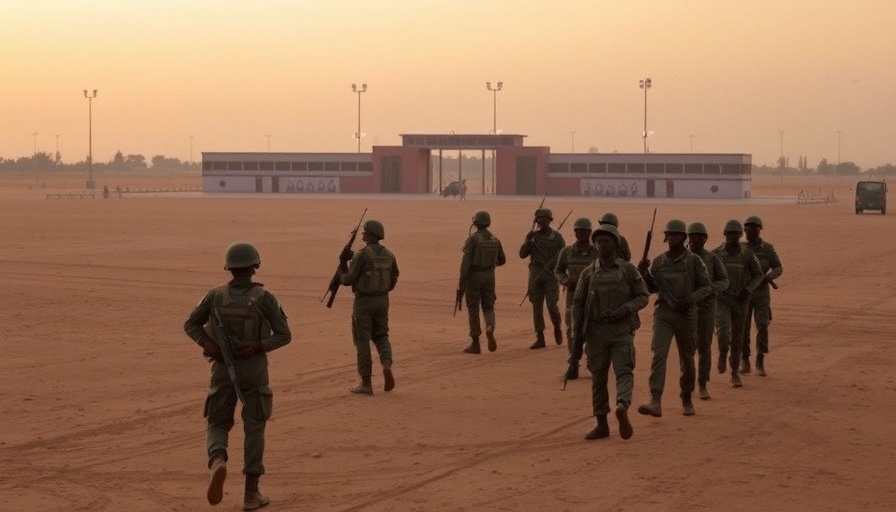
Sudanese Army's Strategic Move: What It Means for Khartoum
The ongoing conflict in Sudan has taken a dramatic turn as the Sudanese army encircles Khartoum International Airport, marking a pivotal moment in its battle against the Rapid Support Forces (RSF). This maneuver highlights the army's recent resurgence in the two-year conflict, which has led to severe humanitarian crises across the nation. Experts believe that the army’s recent territorial gains signal a shift in the power dynamics within Sudan.
The Humanitarian Crisis: A World Concern
As the United Nations describes the situation in Sudan as the world’s largest humanitarian crisis, the encirclement of the capital's airport adds fuel to the fire. With millions facing famine and rampant disease, the international community watches closely. The situation raises alarm bells regarding not only the stability of Sudan but also the potential ripple effects on the surrounding regions and the global economy.
The Backdrop: A Chaotic Path to Power
The current conflict can be traced back to the tumultuous ousting of President Omar al-Bashir in 2019, which initially united the army and the RSF. However, the fragile alliance could not withstand power struggles. As the RSF, rooted in the notorious janjaweed militias of Darfur, consolidates its position, the Sudanese army seems determined to reclaim control. This internal strife underscores broader issues of governance and military overreach that resonate within similar contexts in Africa.
Expert Insights: Future of Governance and Security in Sudan
With the potential re-establishment of military control, observers are left speculating about the future governance structures in Sudan. Would the current military gains pave the way for more effective administration, or would they lead to further collapse? Several analysts point to historical precedents indicating that heavy military control often exacerbates governance issues.
The Economic Ramifications: Impacts Beyond Borders
The conflict's implications extend beyond borders, affecting trade and economic stability in Africa and its interactions with global markets. Regions reliant on Sudan’s agricultural exports, or those involved in the broader African ecosystem, may feel the pinch. The potential for regional instability raises considerable concern among policymakers and investors.
Global Perspectives: The Need for Diplomatic Solutions
In light of the unfolding events, it’s crucial for global powers to engage diplomatically with Sudan in an effort to avoid a deeper crisis. The international community’s response will be critical in shaping the discourse around governance and humanitarian aid, and there’s a strong need for concerted efforts aimed at restoring peace and order.
As these developments unfold, business leaders and investors must stay vigilant in how they navigate the complexities of Africa's political landscape. The ability to swiftly adjust to geopolitical shifts will define success in an increasingly interconnected economy.
 Add Row
Add Row  Add
Add 


 Add Row
Add Row  Add
Add 

Write A Comment